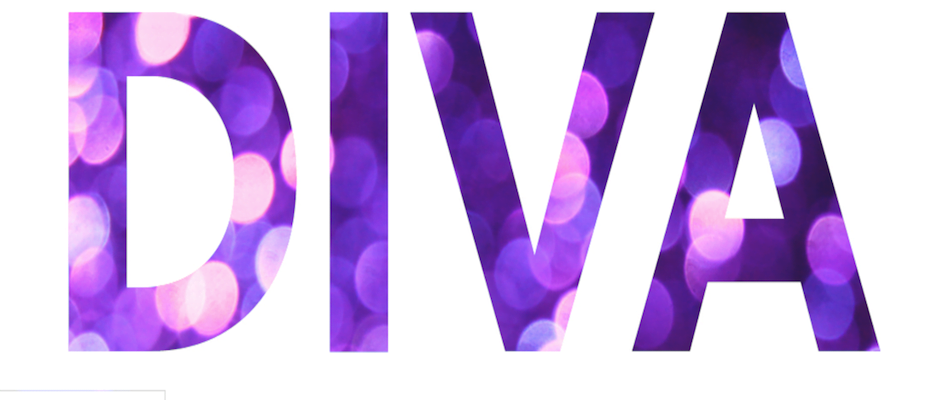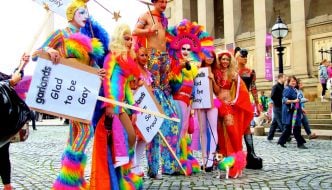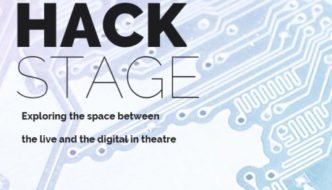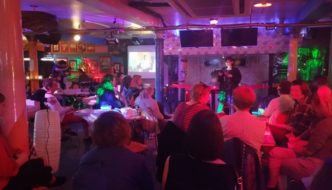 Set up as part of the Homotopia Festival, this year’s Diva Debate was brought to the Unity Theatre in order to highlight the forbidden lives of lesbian and bisexual women from the past to the present.
Set up as part of the Homotopia Festival, this year’s Diva Debate was brought to the Unity Theatre in order to highlight the forbidden lives of lesbian and bisexual women from the past to the present.
As the lights went up, Diva Magazine Editor and Chairwoman, Jane Czyzselska, explained about the event, then introduced the five panelists relating the subjects each of them were going to talk about to the audience, before inviting the first guest, author Diana Souhami, up to speak.
For the next ten minutes or so, she gave a lengthy talk on the historic perspective of the forbidden lives of lesbians and bisexual women in this country with the help of photographs on a screen at the back.
Using some examples of scandalous incidents that happened during Victorian and Edwardian times, she illustrated that the reason that women had to keep their affairs secret at the time was due to the laws that forbade gay men from expressing their desires, even though there weren’t any such laws for women.
Once she had finished speaking, it was the turn of LGBT Equality Advocate, Aderonke Apata, who described what it was like to be a lesbian or gay person in her home country of Nigeria, explaining that before colonisation same-sex relationships were allowed, but afterwards they were banned and it was criminalised, and this is something that is still in effect today, even though they now have independence.
I was shocked to discover that people in Nigeria are living in fear of prosecution if they don’t tell the authorities that they know a person is gay or lesbian, and I was also horrified at the fact that if this debate had been held there, everyone in attendance would go to prison, even if they were heterosexual like myself.
Although Apata now lives in the UK, she doesn’t find things any better and has had problems pleading her case for asylum with the authorities as they think she is lying about her sexuality. As a result, she has set up a support group for people like her and is currently campaigning to get things changed.
Next up was The Right Honourable Baroness Barker, who questioned why lesbians were seemingly everywhere, but were hidden and ignored. She tried to address why that was and why they still had not achieved the same recognition as gay men have done, stating that she thought that even though women had never been criminalised for same-sex relationships in the way that men have, they had learned to keep quiet and get by, almost like they were censoring themselves.
Her hope for the future was that they would achieve equality in practice, as well as in law, and that lesbians and bisexual women could do that by looking back at their history. The penultimate speaker of the night, intersex activist, lesbian, and independent academic, Valentino Vecchietti, talked about the issues that exist for intersex people growing up in Britain and of the discrimination there is towards them.She explained the problems that she personally faced when she hit puberty and started developing both male and female genes. As she wasn’t sure what was happening to her, she felt that she had to hide her identity from society and only came out in her thirties, which wasn’t an easy experience for her as she found that she was excluded from the lesbian clubs that she had been welcomed at before.
She explained the problems that she personally faced when she hit puberty and started developing both male and female genes. As she wasn’t sure what was happening to her, she felt that she had to hide her identity from society and only came out in her thirties, which wasn’t an easy experience for her as she found that she was excluded from the lesbian clubs that she had been welcomed at before.
Having thought a lot about this over the years, she told the audience that she hoped that one day ways could be found in which intersex people could be accepted more in society, then handing over to mic the final speaker of the evening, author, and journalist, Stephanie Theobald.
She started off by reading a short passage from her new novel, Sex Drive, about her road trip across America to search for her own lost libido, then she briefly discussed the taboos of masturbation and explained how things were slowly beginning to change in respect of this, then Jane Czyzselska returned to the podium and conducted a short question and answer session before bringing proceedings to an end.
This debate was certainly an eye opener. There were many things I had never even thought about. As I made my way home, I felt a lot of respect and empathy for the speaker’s who had shared their thoughts and experiences with us that evening.
Homotopia Festival still has plenty of events left to run. You can check them out here.
Filed under: Politics, Written & Spoken Word
Tagged with: Aderonke Apata, Baroness Barker, Diana Souhami, Diva Debate, Diva Magazine, Homotopia, Jane Czyzselska, LGBT, Sex Drive, Stephanie Theobald, Unity Theatre, Valentino Vecchietti



Comments